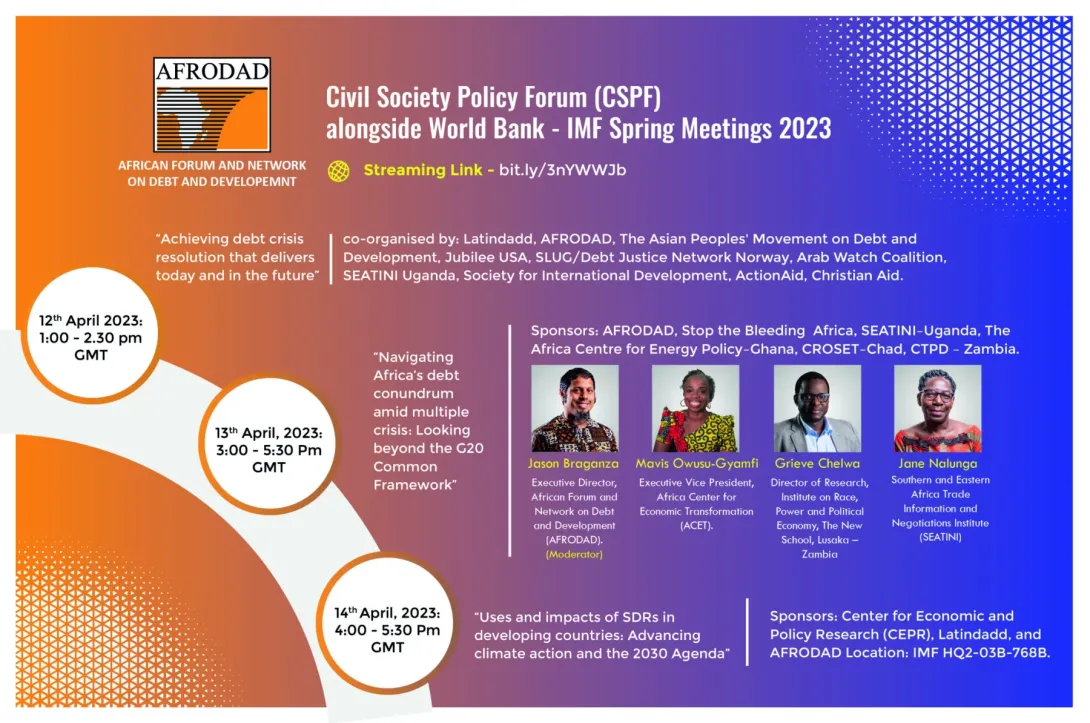Two AFRODAD analyses on the Political Economy of Climate Finance and Fossil Finance in Africa point out that the dominant narrative in climate finance is that Africa is a grant recipient focused on resilience building and other adaptation inclined towards climate change management activities. Debt has also been shown to be a major challenge in the climate finance debate from an African perspective as green debt is seen to come at expensive prices to Africa and is expected that continuous climate disasters will continue to exacerbate the African debt crisis.
Countries struggling today with unsustainable debts also tend to be the most vulnerable to the impacts of climate events despite being less responsible for creating global warming and the climate crisis. Moreover, these countries, have already been paying a higher price due to climate events over recent decades, because the poorest half of the world population, around 3.5 billion people, are responsible for only 10 per cent of the global emissions attributed to individual consumption while at least 50% of these emissions can be attributed to the richest 10% of people around the world.
AFRODAD notes that financing gaps between mitigation and adaptation; debt implications of climate finance; the power of the private sector and the marketisation including the individualisation of climate finance need to be challenged, and posits that the climate finance imbalance between mitigation and adaptation calls for a direct intervention by international financial institutions, and multilateral Institutions Furthermore, such institutions could assist in de-risking e.g., covering project transaction costs of green projects on the African continent and developing standardised adaptation indicators within the African context.
As the World Bank Meetings commence between proceed, discussions on climate change, climate finance and debt sustainability in African are key issues for reform considerations if there is ever going to be a just transition for the African continent.
Below are key sessions that AFRODAD shall be participating in on structural reform of the debt architecture, Special Drawing Rights (SDRs) and the climate debt nexus.
Schedule
Tuesday 11th April 2023, 12:30 – 14:00 – Reimagining African Agency: Utilising SDRs to Achieve African Priorities in Post-COVID-19 Recovery, Eastern Time (US & Canada) Organised by Development Reimagined.
___
Tuesday 11th April – Civil Society Organisations (CSOs) meeting with the AFR Executive Directors (EDs)
___
12th April 2023: 9 – 10.30 am EDT “Achieving debt crisis resolution that delivers today and in the future”.
Rising debt burdens in low- and middle-income countries constrain their response to people’s urgent needs in an adverse and uncertain context. This unfolding debt crisis poses risks to all regions in the Global South and ultimately constitutes a risk to global economic and financial stability.
Co-organised with Latindadd, AFRODAD, APMDD, Jubilee USA, SLUG, Arab Watch Coalition, SEATINI Uganda, SID, ActionAid, Christian Aid.
__
13th April, 2023: 11-13:30 am EDT “Navigating Africa’s debt conundrum amid multiple crisis: Looking beyond the G20 Common Framework”.
The adequacy of the G20 Common Framework for countries to cope with crisis has been considered glibly. This session will examine the multiples crises and the adequacy of the Common Framework to provide credible solutions and to advocate for comprehensive policies for navigating the complexities of the crises in Africa.
Sponsors: AFRODAD, STB Africa, SEATINI–Uganda, ACEP–Ghana, CROSET–Chad, CTPD–Zambia.
___
14th April, 2023: 12-13:30 EDT “Uses and impacts of SDRs in developing countries: Advancing climate action and the 2030 Agenda”.
The 2021 Special Drawing Rights (SDR) allocation provided swift, indispensable crisis relief for developing countries. This panel will explore the impacts and uses of this issuance and the potential role of a new issuance in enabling countries to weather the continued crisis, take climate action, and realize the 2030 Development Agenda.
Sponsors: Center for Economic and Policy Research (CEPR), Latindadd, and AFRODAD Location: IMF HQ2-03B-768B.
For engagements till 21st April 2023 check out this brief video.

